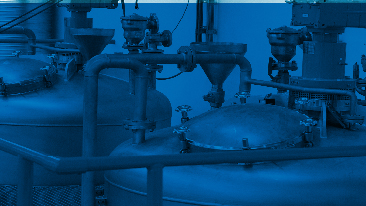Chemical industry customers rely on the product they receive to perform consistently per their specifications. This can create a challenge for manufacturers, as different customers may need variations of any given product in order for them to perform in different ways. So the question becomes, how do you configure a manufacturing facility to optimally produce multiple, high-performing variants of the same chemical compound?
Outside of the chemical processing industry, this issue is called “mass customization.” Many product manufacturers have, for some time, achieved customized of mass produced products to appeal to multiple demographics. By looking at these other industries, chemical manufacturers might be able to come up with new ways to meet customer needs.
Who’s Winning at Mass Customization Today?
The frontier of mass customization is developing the factory to create products that are uniquely customized to the consumer with the agility and responsiveness necessary for profitability and success. This will require the use of digital technologies, as well as a highly skilled workforce and easy access to the markets served.
Here are a couple examples of industries that are advancing the frontier of customization to improve their customer outcomes.
Health Care
The Invisalign product is an early example of mass customization leveraging digital technology. Once Align Technology receives an order for Invisalign, along with the necessary x-rays and photographs of the patient’s mouth, their technicians generate a 3D model that can be used to create simulations about how to best straighten their teeth (this is done in partnership with the patient’s orthodontist). Then a sequence of clear retainers is developed to gradually move the teeth from their current position to their final, desired position.
Chemical manufacturers can take advantage of an analogous process known as golden batch profiling. First, a model of the behavior of critical process variable(s) during the creation of the perfectly made chemical product is developed using data collected from historical production runs. Models can be made to represent the process followed for each of the varied specifications produced at the manufacturing facility.
These models can then be visually represented and automatically monitored in parallel with the actual production process. If the process starts to differ from the model, operators can alter the trajectory of the batch by taking the corrective actions necessary to move it back to baseline “health.” Models are easily interchanged, depending on the product to be made ensuring quality and productivity.
Footwear
Adidas has been getting ready to mass produce a 3D-printed sneaker sole that will be used to create customized sneakers. 3D technology is getting so good that the ability to use it for mass production, enabling mass customization, is now a reality. Key to this is the ability to switch assembly lines from standard products to custom designs within seconds.
In chemical processing, a technology to enable rapid switches to different products is called procedural and recipe control. An automated process guides the making of a product from order creation to delivery. Procedural controls are developed for these processes as well as the processes necessary to transition between them. This creates a manufacturing execution system that maximizes automation with customization to minimize the opportunity for error and the loss of productivity.
Lessons for Chemical Manufacturers
New technologies are advancing at a rapid pace, enabling companies across industries to now produce small-batch variations of their products at a low cost and in record time. Analogous technologies are applicable for chemical manufacturing as well. AspenTech has identified in-depth analytic controls that can ensure your custom batches perform to customer specifications every time while maintaining productivity, cost, delivery and safety targets.
To learn more about how you can improve customer outcomes in chemical manufacturing, check out our white paper Manufacturing Excellence in Specialty Chemicals: Six Essential Levers.




Leave A Comment